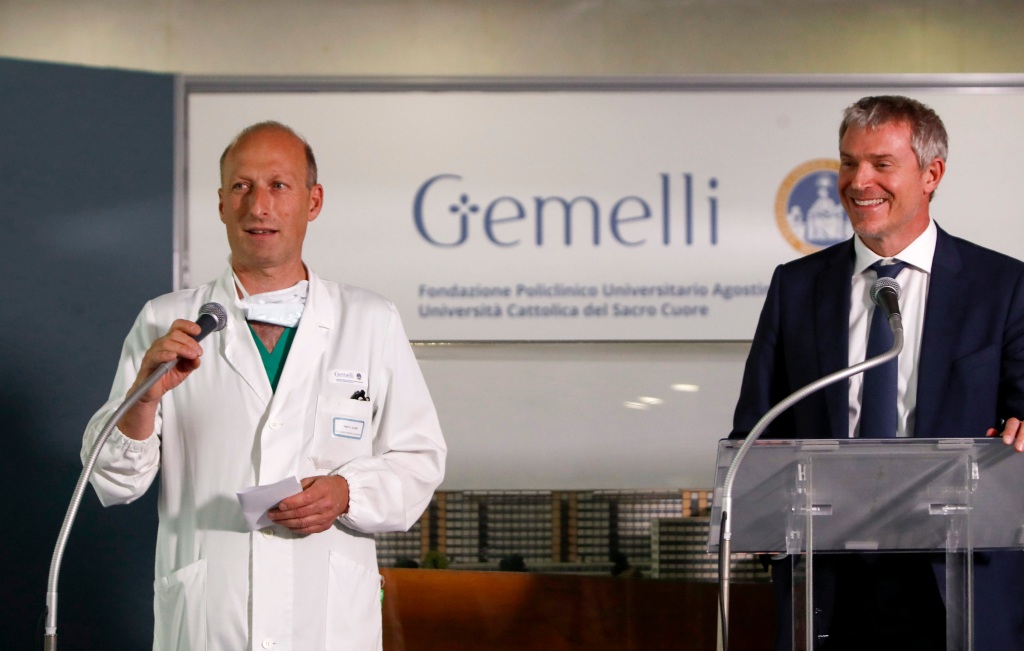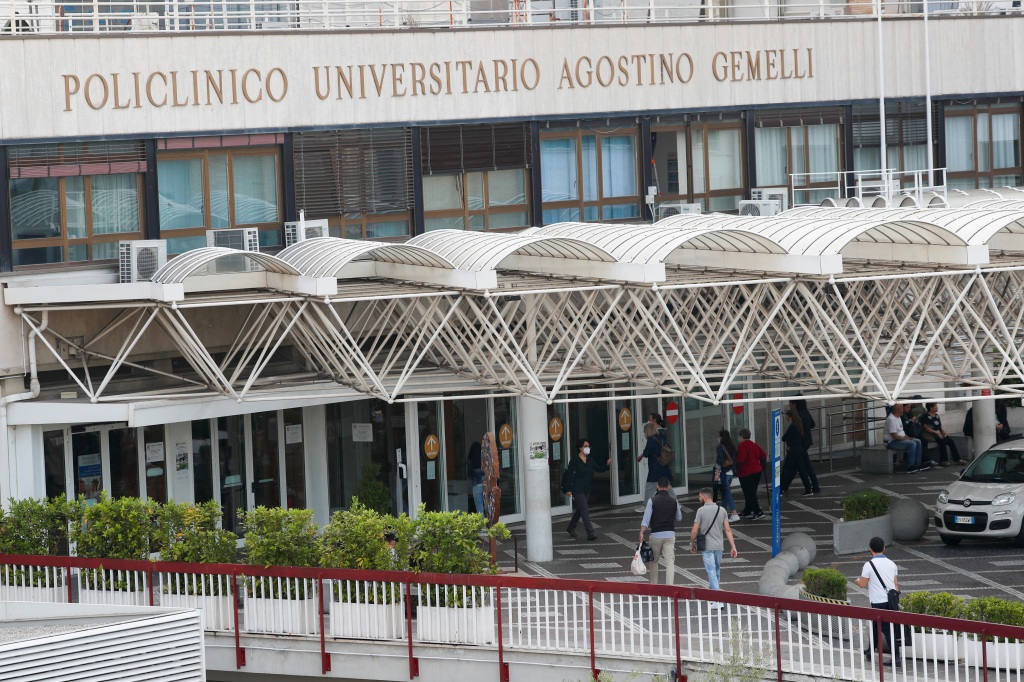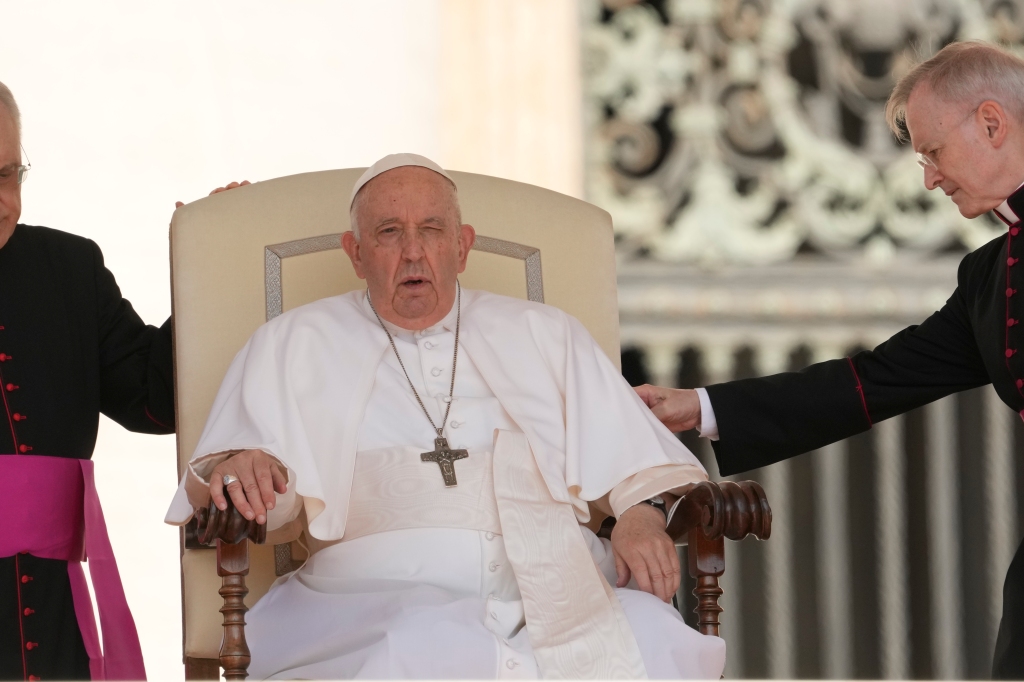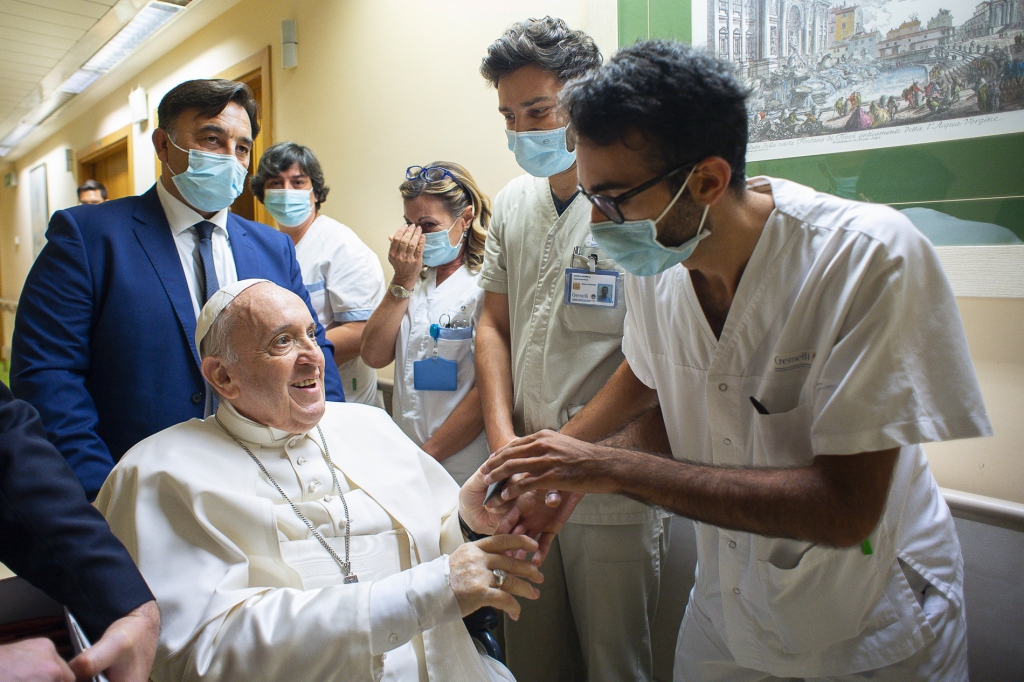Pope spends first night in hospital after surgery to remove intestinal scar tissue, repair hernia
Pope Francis awoke Thursday after a good first night in the hospital following a three-hour operation to remove intestinal scar tissue and repair a hernia in his abdominal wall, problems that developed following previous surgeries.
“The night went well,” Vatican spokesman Matteo Bruni said in a statement early Thursday, adding further updates would be released later.
Dr. Sergio Alfieri, director of abdominal and endocrine sciences at Rome’s Gemelli hospital, said Wednesday’s operation was successful and there were no complications or other pathologies discovered.
Alfieri, who also removed part of Francis’ colon in 2021, told an evening press conference that the pope was awake, alert and even joking.
“When will we do the third one?” he quoted Francis as saying.
The pontiff was expected to remain in the 10th floor papal suite at Gemelli for several days, and all papal audiences were canceled through June 18.
The Vatican was expected to provide a medical update later Thursday.
The operation was scheduled after Francis had complained about increasing bouts of pain and intestinal blockages.

After going to Gemelli on Tuesday for checks, Francis was admitted Wednesday following his general audience and underwent the procedure a short time later.
The surgery was likely scheduled now to give Francis plenty of time to recover before embarking on planned travel later this summer: an Aug. 2-6 trip to Portugal for World Youth Day, and an Aug. 31-Sept. 4 trip to Mongolia.
During the operation, doctors removed adhesions, or internal scarring, on the intestine that had caused a partial blockage.

Alfieri revealed that in addition to the 2021 colon surgery, Francis had undergone previous abdominal surgeries sometime before 2013 in his native Argentina, which had also caused scarring.
To repair the hernia that had formed over a previous scar, a prosthetic mesh was placed in the abdominal wall, Alfieri said.
He added that the pope was suffering from no other pathologies, that the tissue removed was benign and that after he recovers, he should be fine.

A feared protrusion, or bulging of the intestine through the hernia tear, was apparently not found.
“It appears they operated on him in a timely fashion with no compromise to his intestine,” said Dr. Walter Longo, chief of colon and rectal surgery at Yale University School of Medicine, who did not participate in the surgery and commented after consulting the Vatican statement on the procedure.
Francis remained in charge of the Vatican and the 1.3-billion strong Catholic Church, even while unconscious and in the hospital, according to canon law.

In July 2021, Francis spent 10 days at Gemelli to remove 13 inches of his large intestine.
In an interview with The Associated Press in January, Francis said the diverticulosis, or bulges in his intestinal wall, that prompted that surgery had returned.
After that surgery, Francis lamented that he hadn’t responded well to the general anesthetic.
That reaction in part explained his refusal to have surgery to repair strained knee ligaments that have forced him to use a wheelchair and walker for over a year.
However, Alfieri said Francis had no clinically adverse reactions to the anesthesia in 2021 or Wednesday.
“Clearly no one likes to be operated on and put to sleep because the moment we’re put under, we lose consciousness,” he said. “But there was no physiological problem two years ago or today.”
Dr. Manish Chand, a professor of surgery at University College London who specializes in colorectal surgery, said the greatest issue going forward will be pain management and making sure the wound heals properly.
“In the first six weeks after this type of surgery, you’re at risk of getting a recurrence again,” he said. To avoid that, patients are advised not to do anything strenuous.
Read the full article Here


